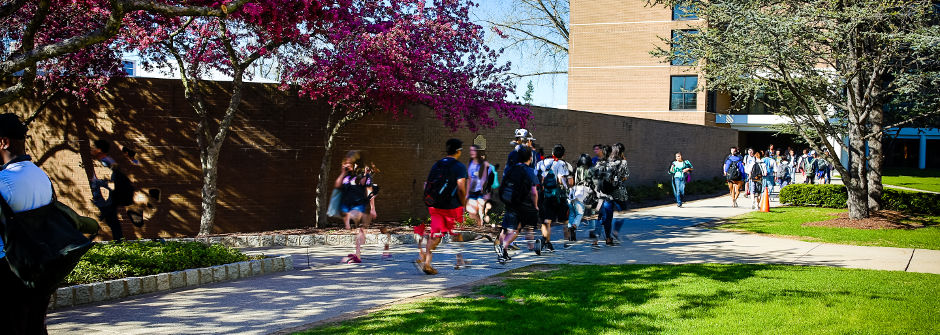
Anti-Hazing Resources for Student Organizations
Hazing in any form contradicts our values and community standards, and we are dedicated to providing students with the tools, knowledge, and support needed to recognize, prevent, and respond to it. On this page, students can explore important information about hazing, including common myths and facts, how to identify if hazing is occurring, and what to do if a fellow student may be experiencing it. Whether you're joining a club, team, or organization, it's important to understand the difference between positive team-building and harmful behavior, and to know that resources and support are always available.
Myths and Facts
Myth: “We told the first years that they didn’t have to [streak, drink, shoplift, etc.] if they didn’t want to, so it’s not hazing.”
Myth: “If we just threaten to haze them, but don’t actually do anything, that’s not a violation.”
Myth: “We’re just having the new members run errands for us. Since no one’s getting hurt, it’s not hazing.”
Myth: If someone agrees to participate in an activity, it can’t be considered hazing.
Myth: New members want to be hazed.
Myth: Hazing is the only method for holding new members accountable.
Myth: Hazing continues because everyone in the group supports it.
Myth: Enduring hazing is a sign of strength.
Myth: Hazing only exists in fraternities and sororities.
Myth: Since alumni and current members were hazed it is only fair that the new members go through it too.
Healthy Alternatives to Hazing
 Seton Hall encourages meaningful, inclusive ways for student organizations to build
bonds and create lasting memories—without hazing. Here are positive, community-building
activities your group can explore instead:
Seton Hall encourages meaningful, inclusive ways for student organizations to build
bonds and create lasting memories—without hazing. Here are positive, community-building
activities your group can explore instead:
- Attend Seton Hall sporting events together—cheer on the Pirates.
- Plan a road trip to your fraternity or sorority's inter/national headquarters or visit a chapter at another campus.
- Organize a project to improve your meeting space, campus area or a local community park.
- Raise funds for a shared goal, like renovating or purchasing items for your chapter house or meeting space.
- Host a family weekend — invite parents, siblings, or loved ones to experience your Seton Hall life.
- Join Intramural Sports to promote fun and friendly competition.
- Complete a hands-on service project to support local children, the elderly, or underserved communities.
- Attend campus plays, lectures, and concerts as a group to explore shared interests.
- Host a Career Night with alumni to build connections and mentorship.
- Invite alumni to participate in Homecoming or other student life traditions.
- Plan a group night out — go ice skating or explore a local activity off-campus.
- Lead an educational session about your organization’s or Seton Hall’s history.
- Enjoy movie nights, themed dinners, or team-building meals on or off campus.
- Organize beautification projects to give back to your campus or community.
- Facilitate a leadership workshop to develop valuable skills within your group.
- Take part in or create a mentoring program with underclassmen or peers across organizations.
Hazing Prevention Resources:
On-Campus Contacts
- Karen Van Norman – Associate VP & DOS – (973) 761-9076
- Nicole Giglia Ph.D. – Associate DOS – ( 973) 761-9076
- Winston Roberts – Assistant VP Student Services – (973) 761-9077
- Kira Casas-Puente – Assistant Director (Fraternity & Sorority Life) – (973) 313-6062
- Jasmine Drew – Assistant Director (Clubs & Organizations) - (973) 275-3774
- Tatum Colitz - Deputy AD for Compliance & Student-Athlete Development – (973) 761-9494
- Public Safety & Security – (973) 761-9300
External Resources:
Reporting Hazing
For additional information on how to report hazing, please review our Anti-Hazing Policy.

